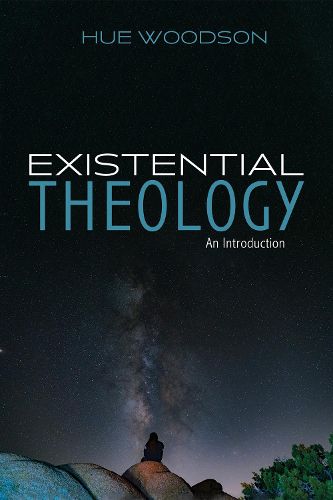Readings Newsletter
Become a Readings Member to make your shopping experience even easier.
Sign in or sign up for free!
You’re not far away from qualifying for FREE standard shipping within Australia
You’ve qualified for FREE standard shipping within Australia
The cart is loading…






This title is printed to order. This book may have been self-published. If so, we cannot guarantee the quality of the content. In the main most books will have gone through the editing process however some may not. We therefore suggest that you be aware of this before ordering this book. If in doubt check either the author or publisher’s details as we are unable to accept any returns unless they are faulty. Please contact us if you have any questions.
Existential Theology: An Introduction offers a formalized and comprehensive examination of the field of existential theology, in order to distinguish it as a unique field of study and view it as a measured synthesis of the concerns of Christian existentialism, Christian humanism, and Christian philosophy with the preoccupations of proper existentialism and a series of unfolding themes from Augustine to Kierkegaard. To do this, Existential Theology attends to the field through the exploration of genres: the European traditions in French, Russian, and German schools of thought, counter-traditions in liberation, feminist, and womanist approaches, and postmodern traditions located in anthropological, political, and ethical approaches. While the cultural contexts inform how each of the selected philosopher-theologians present genres of
existential theology,
other unique genres are examined in theoretical and philosophical contexts, particularly through a selected set of theologians, philosophers, thinkers, and theorists that are not generally categorized theologically. By assessing existential theology through how it manifests itself in
genres,
this book brings together lesser-known figures, well-known thinkers, and figures that are not generally viewed as
existential theologians
to form a focused understanding of the question of the meaning of
existential theology
and what
existential theology
looks like in its varying forms.
$9.00 standard shipping within Australia
FREE standard shipping within Australia for orders over $100.00
Express & International shipping calculated at checkout
This title is printed to order. This book may have been self-published. If so, we cannot guarantee the quality of the content. In the main most books will have gone through the editing process however some may not. We therefore suggest that you be aware of this before ordering this book. If in doubt check either the author or publisher’s details as we are unable to accept any returns unless they are faulty. Please contact us if you have any questions.
Existential Theology: An Introduction offers a formalized and comprehensive examination of the field of existential theology, in order to distinguish it as a unique field of study and view it as a measured synthesis of the concerns of Christian existentialism, Christian humanism, and Christian philosophy with the preoccupations of proper existentialism and a series of unfolding themes from Augustine to Kierkegaard. To do this, Existential Theology attends to the field through the exploration of genres: the European traditions in French, Russian, and German schools of thought, counter-traditions in liberation, feminist, and womanist approaches, and postmodern traditions located in anthropological, political, and ethical approaches. While the cultural contexts inform how each of the selected philosopher-theologians present genres of
existential theology,
other unique genres are examined in theoretical and philosophical contexts, particularly through a selected set of theologians, philosophers, thinkers, and theorists that are not generally categorized theologically. By assessing existential theology through how it manifests itself in
genres,
this book brings together lesser-known figures, well-known thinkers, and figures that are not generally viewed as
existential theologians
to form a focused understanding of the question of the meaning of
existential theology
and what
existential theology
looks like in its varying forms.